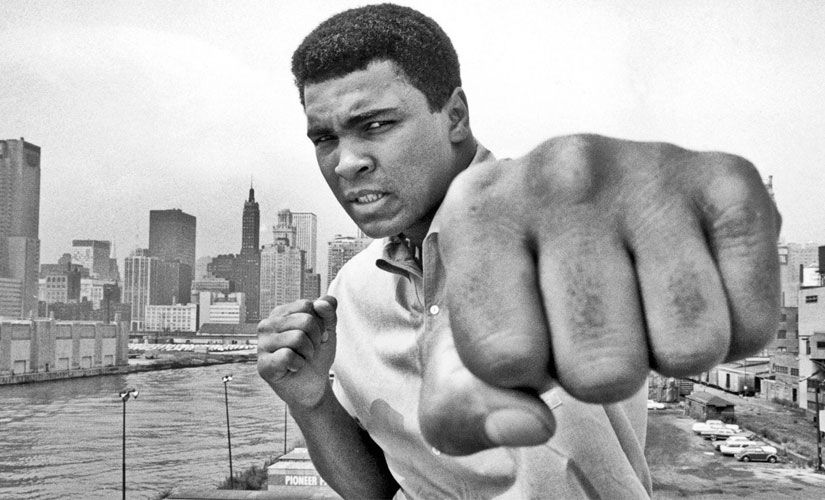He became a Muslim at 22; he threw his medal in the river: the story of Muhammad Ali's legendary life
Muhammad Ali, who thought, 'the Vietnamese have done me no harm, 'so I shall fight them', did not join the war. Some Americans never liked him, but some accepted him as "idol." Here's the story:

Muhammad Ali was born on January 17, 1942 in Louisville, the state of Kentucky, USA by name Cassius Marcellus Clay Jr. When Clay was 12 years old, after a thief stole his bike, he got angry and he was directed to boxing by a Louisville police officer and boxing coach, Joe E. Martin. First Clay, who wasn't interested, later saw amateur boxers in a local TV show called Tomorrow's Champions, and he changed his mind.
One of the greatest boxers of all time, Muhammad Ali, was him name Cassius Clay, the first to reach the top of the world stage. When he joined the 1960 Roman Olympics, the young boxer, who was 18, became the olympic champion in a light heavyweight. But he only carried his gold medal for 2 days.
Why did he throw his gold medal in the river?
Returning from Rome to his country as an Olympic Champion, the black boxer felt that America did not deserve this medal after a restaurant in Ohio where he was served only to the whites and not to be fed. He threw his medal in the Ohio River, and that medal was never found again.
Boxing adventure
Clay was world champion in 1964, defeating Sonny Liston when he was 22. After his victory, he had changed his religion and converted to Islam and became a muslim. Then he changed his name to Muhammad Ali. And he had to take a break from 1967 to 1970 of the boxer he loved so much.
Ali, who participated in many responsibility projects, fought racism with a fellow Malcolm X, who was under the leadership of Nation of Islam. "The Vietnamese have done nothing to me to fight them." He was sentenced to 5 years in prison and 10 thousand dollars in fines for not going to the Vietnam War. Muhammad, whose license and passport were taken away, suffered financial difficulties during the trial. He made a living with his family's help and his speeches in college. As in boxing, in social life and in the intellectual world, the Muslim athlete, who did not compromise on their firsts and fight, was able to win the appeal case in 1970 and return to boxing.
Ali, who visited Africa and the Middle East many times since 1964, said he was actively fighting against racism. And he played a role model for many people and became very popular.
In 1971, he went to the game with Joe Frazier and for the first time he was defeated. Despite experts who thought he wasn't ready for a tough game because he was taking a long break, Muhammad wanted to be champion again. In his boxing with Ken Norton, his career was thought to be over by breaking his jaw. But he started working nonstop and beating his opponents one by one. He finally beat Ken Norton and got the rematch.
In 1973, he played with Joe Frazier, and then he set up a match with George Foreman. And he managed to win both games. So, Mohammed got his title, and he managed to show that nothing was over yet. In 1978, Muhammad was defeated by Leon Spinks. And then defeated his opponent in the same year, he signed his name as the first boxer to win the world championship three times.
Muhammad Ali left boxing as champion in 1978. Although he had parkinson's disease in 1984, he hid it and played two more games for great money and lost it. Defeated 5 times in his professional periods, Olympic and World Champion Muhammad Ali was the only name for all champions until he was 36 and won a total of 56 matches, 37 of which were knockout.
Even though he's sick and he can't box anymore, "I'm the best of all time." he's become a legend by proving his point. Fighting parkinson's disease, Muhammad Ali died on 3 June 2016 at the age of 74 due to respiratory distress. The life of Muhammad Ali, who was considered the best of his time, was immortalized by Hollywood in 2001 by a film called Ali.
